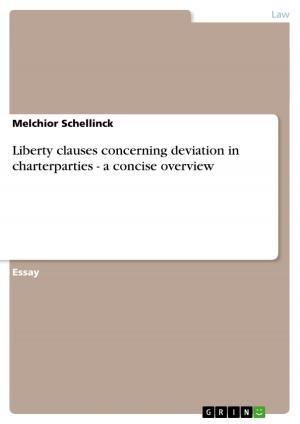| Author: | Diana Beuster | ISBN: | 9783638829601 |
| Publisher: | GRIN Publishing | Publication: | July 13, 2007 |
| Imprint: | GRIN Publishing | Language: | English |
| Author: | Diana Beuster |
| ISBN: | 9783638829601 |
| Publisher: | GRIN Publishing |
| Publication: | July 13, 2007 |
| Imprint: | GRIN Publishing |
| Language: | English |
Seminar paper from the year 2007 in the subject History - World History - Early and Ancient History, grade: Sehr Gut (A), Indiana University (Department for Classical Studies), course: Ancient democracy beyond Athens, 18 entries in the bibliography, language: English, abstract: The Spartan Ephorate is often a crucial indication in the context of a development of the Spartan constitution; more precisely the Ephorate compared with the Spartan double kingship. It seems to be communis opinio among scholars to assume a constant development of the institutions in Sparta from monarchic dominated up to the partly oligarchic and partly democratic institutions in the Classical time. The assumptions of many scholars culminate in the conclusion of a declining of the kingship by the rising of the Ephorate as a guard of the kings. This paper tries to answer the question whether there is a rise of the Ephorate and corresponding with a decline of the kingship either in the 6th or in the 5th century BC or not.
Seminar paper from the year 2007 in the subject History - World History - Early and Ancient History, grade: Sehr Gut (A), Indiana University (Department for Classical Studies), course: Ancient democracy beyond Athens, 18 entries in the bibliography, language: English, abstract: The Spartan Ephorate is often a crucial indication in the context of a development of the Spartan constitution; more precisely the Ephorate compared with the Spartan double kingship. It seems to be communis opinio among scholars to assume a constant development of the institutions in Sparta from monarchic dominated up to the partly oligarchic and partly democratic institutions in the Classical time. The assumptions of many scholars culminate in the conclusion of a declining of the kingship by the rising of the Ephorate as a guard of the kings. This paper tries to answer the question whether there is a rise of the Ephorate and corresponding with a decline of the kingship either in the 6th or in the 5th century BC or not.















